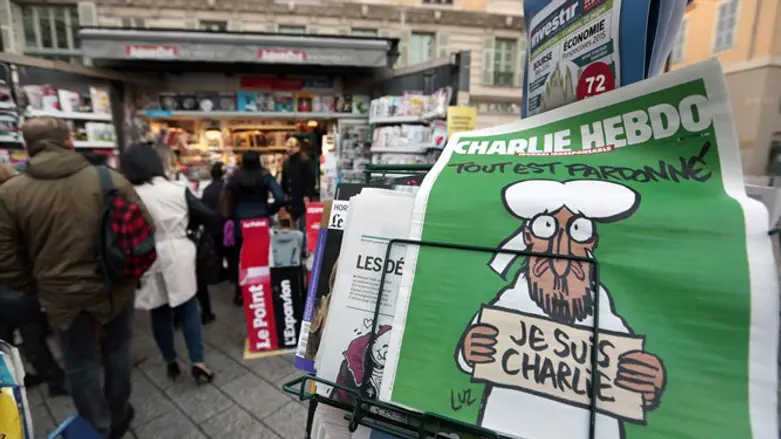
The trial of 14 people accused of aiding jihadist gunmen who targeted the Charlie Hebdo newspaper and other Paris targets in January 2015 has been postponed until September, after courts were
almost totally shut down in France's coronavirus fight, prosecutors said Tuesday.
Seventeen people were killed over three days in and around the city after brothers Cherif and Said Kouachi massacred 12 people at the offices of the satirical paper, heralding a wave of Islamic attacks on French soil in the following years.
After years of investigations, the trial was to open in May, but confinement rules imposed by authorities to slow the coronavirus outbreak prompted prosecutors to announce a delay last week.
It is now to open on September 2 and run until November 10, France's anti-terrorism prosecutors said.
Two days after the Charlie Hebdo killings, the Kouachi brothers were cornered and killed by security forces at a printing company outside Paris.
That same day, Amedy Coulibaly opened fire at a Jewish supermarket in eastern Paris, killing four, a day after he killed a young policewoman in Paris. He also was killed by security forces during the siege.
All three gunmen had claimed allegiance to jihadist groups.
The 14 suspects facing trial are accused of providing logistical aid to the attackers.
Eleven of the suspects are in detention, but three will be tried in absentia, including Hayat Boumedienne, Coulibaly's girlfriend, who authorities say left for the Iraq-Syria region during the attacks.
Also on the run are brothers Mohamed and Mehdi Belhoucine, who also fled the country just before the attacks.
Unconfirmed reports have said all three were killed during the fierce bombing campaigns by coalition forces to defeat Islamic State jihadists in their so-called Syrian "caliphate."
Prosecutors said earlier this month that the trial will be filmed -- normally forbidden in France, but allowed in cases deemed essential for the country's judicial archives.
The Charlie Hebdo massacre sparked a series of jihadist attacks in French, including "lone wolf" killings by people said to be inspired by the Islamic State group, that have since claimed more than 250 lives.
